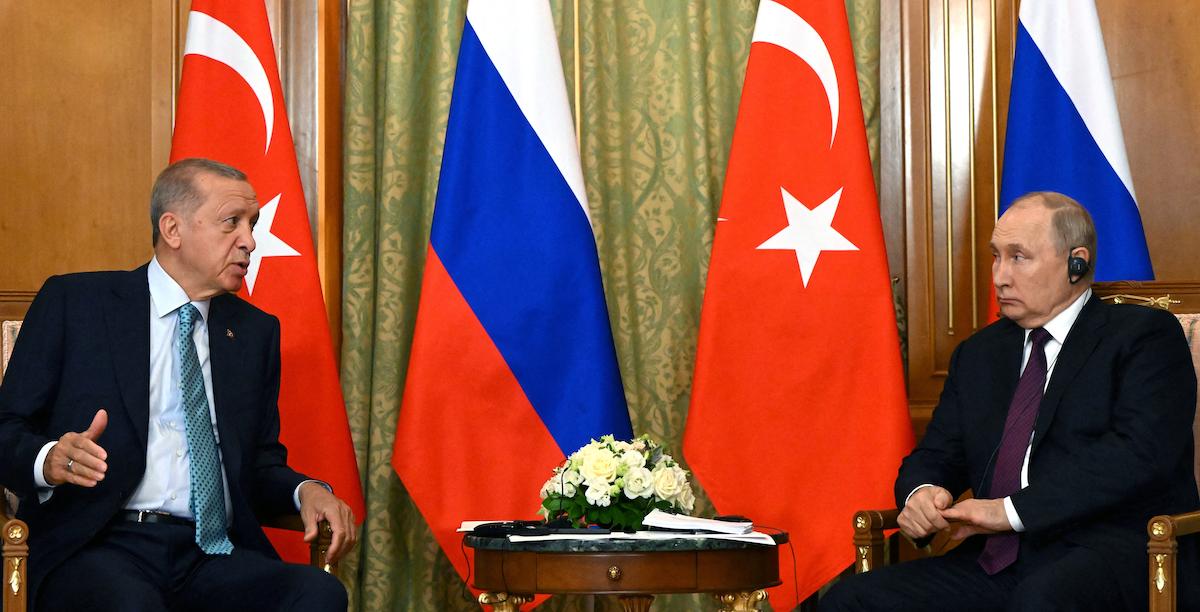Russian President Vladimir Putin’s weekend meeting with Turkish President Recep Tayyip Erdogan has failed to revive the Black Sea grain deal. The UN-brokered agreement, which guaranteed safe passage for Ukrainian grain shipments to markets in Africa, the Middle East and Asia, had been on hold since July. Russia refused to extend the deal, citing a failure to honor a parallel agreement to remove obstacles to its food and fertilizer exports.
On Monday, Putin reiterated this demand. "We will be ready to consider the possibility of reviving the grain deal … we will do this as soon as all the agreements on lifting restrictions on the export of Russian agricultural products are fully implemented.” Moscow is also demanding that the Russian Agricultural Bank be reconnected to the SWIFT international payments system, from which it was cut off as part of EU sanctions for its invasion. The UN had offered to reinstate this relationship in July to keep the grain deal alive.
Erdogan offered his own prescription for reviving the deal: “Ukraine needs to especially soften its approaches in order for it to be possible for joint steps to be taken with Russia" and export more grain to Africa rather than Europe. Ukrainian Foreign Minister Dmytro Kuleba “took note” of Erdogan’s position, but added, "We should not continue to be hostages to Russian blackmail, where Russia creates problems and then invites everyone to solve them.”
To deflect criticism that Russia is starving developing nations of much-needed food, Russia is set to supply up to one million tons of grain to Turkey at reduced prices for processing at Turkish plants and shipping to countries “most in need.” Putin is also brokering a deal to send free grain to six African countries: Burkina Faso, Zimbabwe, Mali, Somalia, Eritrea, and Central African Republic.
But Russia’s moves aren’t all bread and roses: They will also conveniently purchase political capital for Russia’s war in Ukraine and expand its influence over the African continent, an arena where Russia has been increasingly active in recent years.
